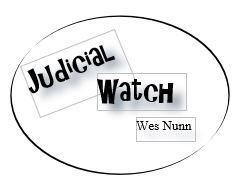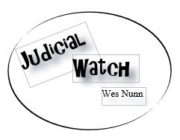A stark comparison of decisions by local judges
 Opinion Piece By Wes Nunn – March 23, 2018 –
Opinion Piece By Wes Nunn – March 23, 2018 –
Jurisdiction
The question of legal jurisdiction is a remedial concept for most attorneys. The law mandates that jurisdictional issues always take precedence over all other issues. The reason is, if the court doesn’t have jurisdictional authority, any decision which follows is void; i.e.: no jurisdiction, no authority. The question of jurisdiction is so powerful, it can be raised at any time. “Jurisdiction can be challenged at any time.” … “Jurisdiction, once challenged, cannot be assumed and must be decided.” Basso v. Utah Power & Light Co., 495 F2d 906, 910; and, “The burden shifts to the court to prove jurisdiction.” Rosemond v. Lambert, 469 F2d 416. The concept goes way back in English common law.
Most people are familiar with jurisdiction as it relates to location. But other important elements are required. A great example of jurisdiction is the requirement that the defendant in a civil case must be served within three years (Cal. Code Civ. Proc. §583.210). If the time limit has run out, the court has no authority to decide anything in the case, i.e.; the court ‘lacks jurisdiction’. If the court ignores the jurisdictional challenge and makes a decision anyway, the decision is said to be made “in excess of jurisdiction”, “extra-judicial”, or, in Latin, “ultra vires”. Any such decision made in excess of jurisdiction is void, voidable, or reversible.
The Bad Judge: Judge Follett routinely ignores jurisdictional challenges and the law behind them. In one case I was forced to appeal Follett. The First District Court of Appeal in San Francisco agreed with me and disagreed with Judge Follett. In particular, Follett falsely claimed Judge Schafer awarded property to another party (just one example of Follett fabricating his own facts). I immediately challenged this absurdity because Judge Schafer never had any such jurisdiction to do so. Follett refused to allow the jurisdictional challenge, so I appealed. The Appellate Court in San Francisco recognized and acknowledged that Judge Schafer never made any such award.
Follett has retaliated against me ever since. And I’m not the only one. I hear reports that Follett routinely retaliates against many of the local attorneys who refuse to go along with his bad rulings. No one should be forced to deal with this kind of judicial abuse.
Good Judge: Last Friday I sat in on a trial scheduled in Judge McElfresh’s court. Several matters were at issue including a jurisdictional challenge. Judge McElfresh correctly required the jurisdictional matter to go first ahead of the scheduled trial. Jurisdiction could not be established and Judge McElfresh accordingly had no choice but to dismiss the action. As it turns out, because the plaintiff failed to serve the defendant within the mandated three year time limit for civil cases, the court had no jurisdiction to hold a trial (Cal. Code Civ. Proc. §583.210). And Judge McElfresh was respectful enough to explain it to the losing party. It’s really nice to finally have a local judge who follows the law and who’s respectful to the litigants in the process.
Due Process
Another vital area of law is “due process”, a constitutionally protected right for every citizen of this state and of the United States. “Due process is the legal requirement that the state must respect all legal rights that are owed to a person. …When a government harms a person without following the exact course of the law, this constitutes a due process violation, which offends the rule of law.” (source, Wikipedia). This concept also goes way back in English common law.
One example of when a court violates your due process rights is when the court refuses to let you introduce evidence or testimony that should otherwise be admissible. A corrupt court often uses this as a means to manipulate the outcome of a case.
Obviously a party can’t win if the court refuses to let them admit their evidence. A party unaware of the law, or unable to appeal, usually finds themselves a victim without understanding that laws of due process were violated by the court.
Bad Judges: Judge Follett, Judge Schafer, and the former Judge Doehle are all guilty of unlawfully refusing admissible evidence on many occasions. I have personally watched them use it to manipulate the outcome of cases. Doehle, in her former position as appointed judge, went as far as to directly defy the California Legislature. Judge Schafer did the same by refusing to allow admissible testimony, also directly defying California Legislature. In addition, Judge Follett just makes up his own facts and law.
Good Judge: Over the years I’ve watched many hearings take place. In every case I’ve seen in Judge McElfresh’s court, he went the extra mile to make certain every litigant was given their full right to due process. I saw it again just last Friday (March 16th) when he gave one party an extra ½ hour to try and find a certain document. That party was unable to produce the document and lost the case, but not because of a violation of due process.
Our newest judge, Bob Cochran, is scheduled to be sworn in January 2019. Our two ‘sitting’, or elected, judges will be McElfresh (presiding) and Cochran. It’s certainly my hope that Cochran takes an example from Judge McElfresh and not from his hopelessly corrupt former partners Judges Schafer and Follett.



very good article .. clear – succinct. Thank You